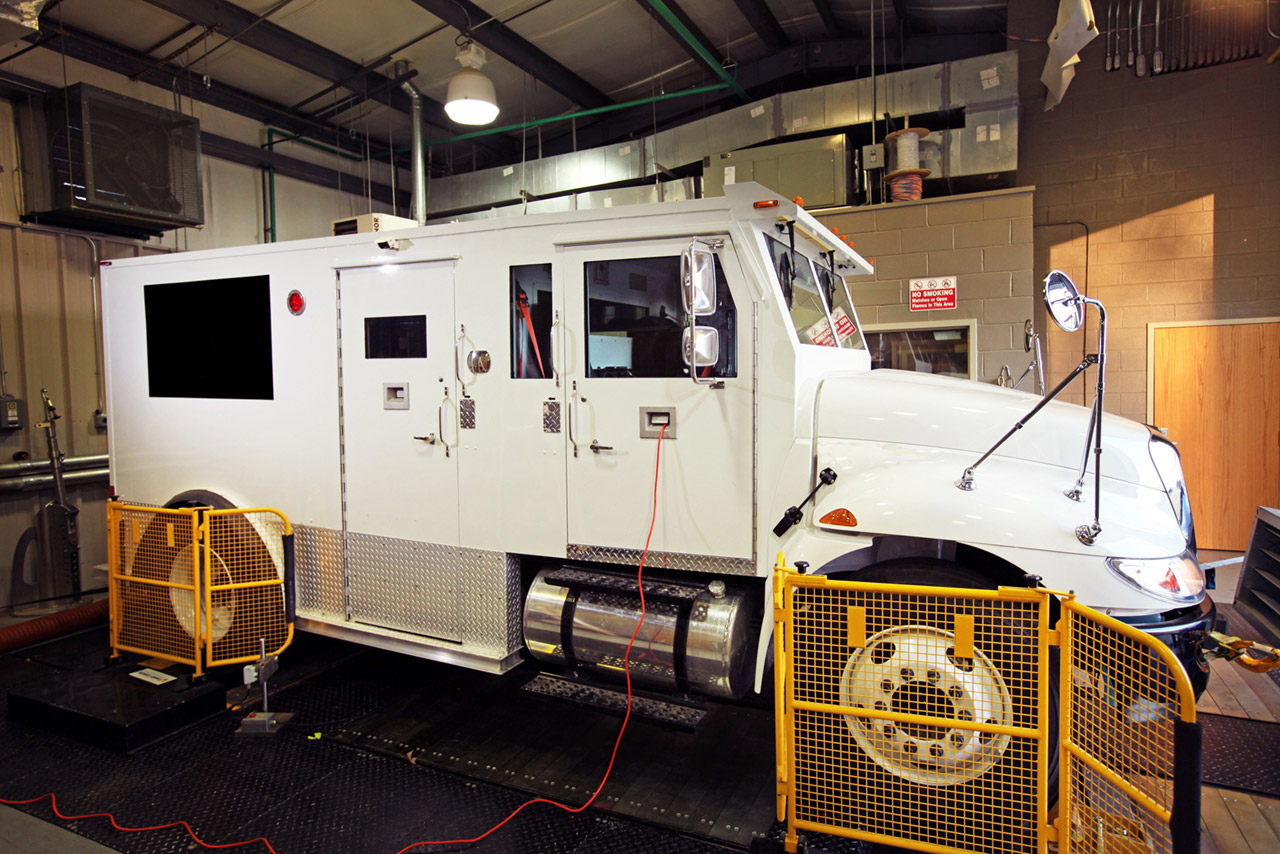MSU develops fuel-saving system for armored vehicles
Contact: Zack Plair
 STARKVILLE, Miss.—A North Mississippi-based armored vehicle company will soon manufacture a more fuel-efficient product because of improvements developed by a major Mississippi State research organization.
STARKVILLE, Miss.—A North Mississippi-based armored vehicle company will soon manufacture a more fuel-efficient product because of improvements developed by a major Mississippi State research organization.
At the university’s Center for Advanced Vehicular Systems, a team of faculty and research staff members, along with graduate and undergraduate students, recently spent nearly a year developing an idle-reduction system for CITE Armored of Holly Springs. Specifically, they came up with changes that reduce fuel consumption of the company’s cash-in-transit vehicles.
The “idle off” system developed by the MSU team should improve a vehicle’s fuel efficiency by about 20 percent.
The MSU team delivered two working prototypes to the company for field testing last December, along with system blueprints for full-scale production.
CAVS Extension, an MSU unit focused on industrial projects, partnered with the CAVS research team on the CITE project. Director Clay Walden said the CITE project’s success embodied what CAVS Extension is meant to accomplish.
“This is a really excellent project, and it demonstrates how we can help Mississippi companies compete successfully using new technology and advanced resources,” Walden said.
Armored vehicles made by CITE are used to pick up and deliver cash for financial institutions. The driver—who must remain inside with the engine running—and a carrier make frequent stops that may last anywhere from five to 15 minutes. A constantly idling engine is necessary to maintain warm or cold air flow required for cabin comfort.
Matthew Doude, a CAVS research associate, said the team was asked to develop an electronic system that automatically turned off the engine when the driver shifted into park—but that kept the heating or air conditioning running.
“The idea itself (of heating or cooling a vehicle without using the engine) maybe isn’t revolutionary, but the way we did it is pretty unique,” Doude explained. “There are after-market bolt-on air conditioners you can get that would probably serve a similar purpose, but we integrated our system with the vehicle’s existing heating and air conditioning so that everything happens automatically for the driver.”
While the new system costs a little more on the front-end, Doude said long-term fuel savings should more than pay for the technology over the life of each equipped vehicle.
Ken Russell, CITE’s senior vice president of plant operations, complimented the CAVS team for its work and the product it developed.
“It is our goal to be the industry leader in technology as applied to cash-in-transit armored vehicles,” Russell said, “not only to provide customers integrated control systems, but also efficiently utilize their resources (fuel savings on the engine/idle system). CAVS provides unique, world class resources that effectively brings to fruition projects that we would not have in-house resources to accomplish.
“CAVS engineers, equipment and facility are a rare combination of research and hands-on skills directed at solving and creating innovative solutions. To have such a resource locally available in-state created a synergy between CAVS and CITE that would be almost impossible to replicate,” Russell said.
Doude said requests for CAVS consulting by private companies like CITE, especially on powertrain engineering research, are increasing. Even those situated much closer to the Michigan automotive industry have come to MSU for research and expertise, he added.
With an international automotive industry changing so dynamically and rapidly in recent years, Doude predicted that CAVS will be ideally positioned to make an ever-growing impact on vehicle technology.
“I think the last five years have been the most transformative in the automotive industry since the invention of the car,” he said. “I don’t see that slowing down at all over the next 10 years. It’s an exciting time to be in the automotive field.”
For more about CAVS, visit www.cavs.msstate.edu.
MSU, Mississippi’s flagship research university, is online at www.msstate.edu.